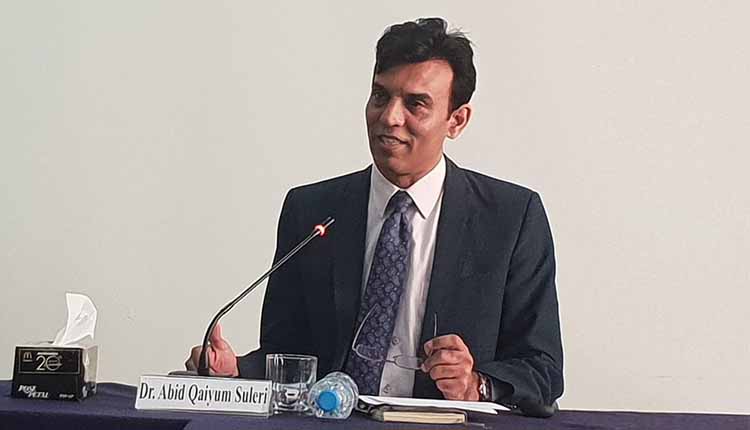Islamabad: In a significant move to bolster climate change governance, Dr. Abid Qaiyum Suleri, the Executive Director of the Sustainable Development Policy Institute (SDPI), has been appointed as a member of the Prime Minister’s Committee tasked with the critical review of climate change governance and the mechanisms for accessing climate funds.
The establishment of this committee is a testament to Pakistan’s commitment to addressing the pressing issue of climate change. Chaired by the Deputy Chairman of the Planning Commission, Mohammad Jehanzeb Khan, the committee is a diverse blend of government officials, parliamentarians, civil society representatives, environmental NGOs, private sector entities, research institutes, and experts with specialized knowledge. Members of the committee include Coordinator to PM on Climate Change, Romina Khurshid Alam, Senator Ayesha Raza Farooq, MNA Bilal Kiyani, Executive Director, SDPI, Dr. Abid Qaiyum Suleri, Kashmala Kakakhel Climate Finance Expert, Rizwan Mehboob, Climate Expert, Ali Tauqir Sheikh Climate Expert, Ahsan Kamran Climate Finance Expert, Nadia Rehman, Member Climate Change, Secretary MoCC&EC (Secretary of the Committee), Secretary Commerce, Secretary MoPDSI, Secretary Economic Affairs and Additional Secretary Ministry of Finance.
The committee’s mandate is comprehensive, aiming to mainstream climate considerations across all government operations and integrate them into the broader development agenda, aligning with the Sustainable Development Goals (SDGs). This includes a thorough evaluation of existing and proposed institutional mechanisms, such as the National Climate Change Council, the Strategic Infrastructure Fund Committee (SIFC), the proposed Climate Change Authority, the Climate Change Fund, the National Disaster Risk Management Fund, and ensuring coordination with key ministries.
Moreover, the committee will scrutinize institutional mechanisms and policies to mobilize climate finance effectively. This includes not only climate funds but also innovative financial instruments that can support Pakistan’s journey towards sustainable development.
The committee will make recommendations to strengthen climate governance, access climate, and carbon finance, and mobilize the private sector to drive the decarbonization of industry, integrate into green value chains, and boost exports in alignment with evolving international regulatory mechanisms such as carbon border adjustments. The committee is expected to influence the future of climate policy in Pakistan, a space that warrants close observation by all stakeholders invested in the global climate discourse.


